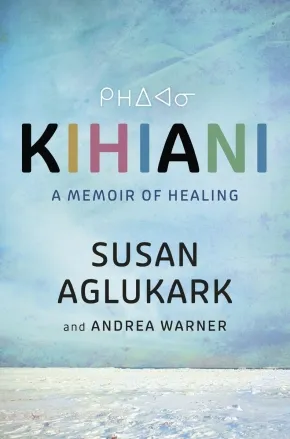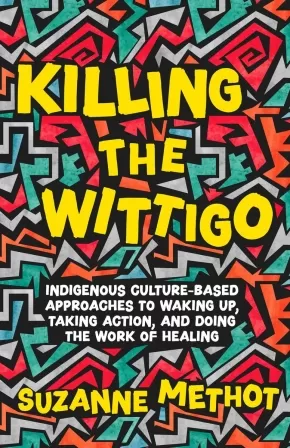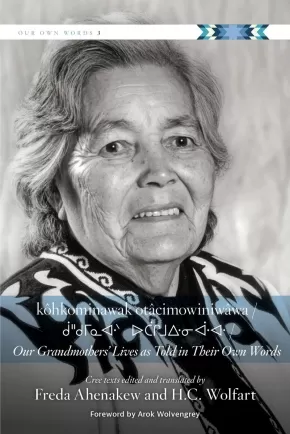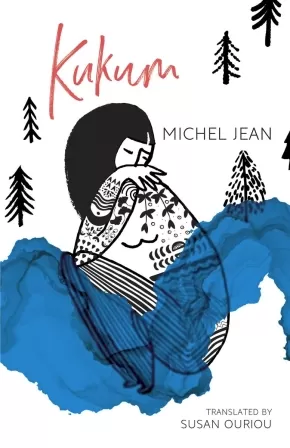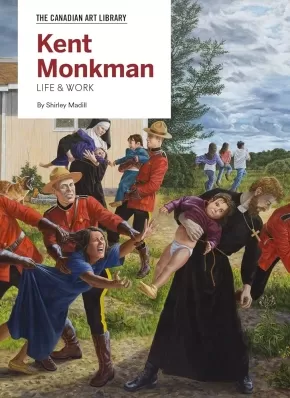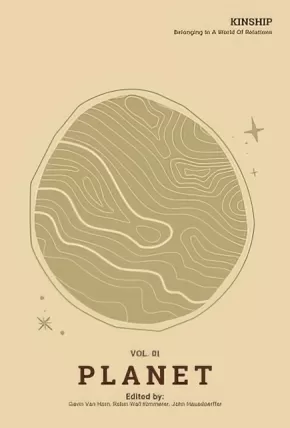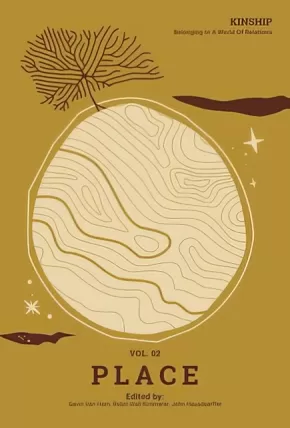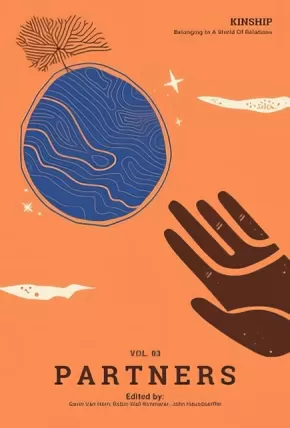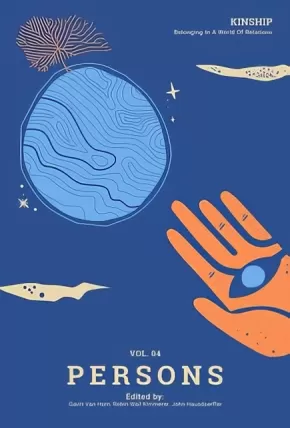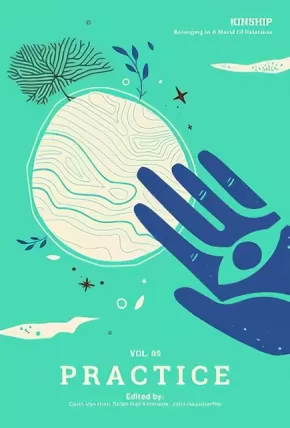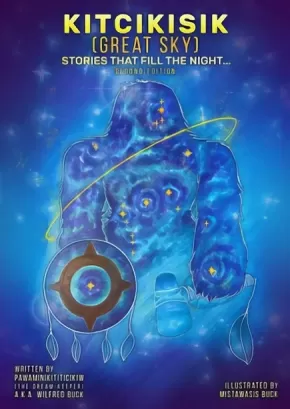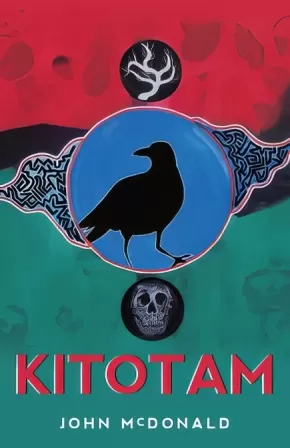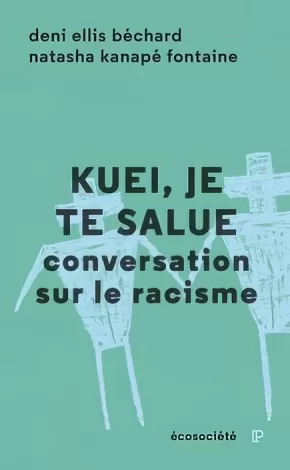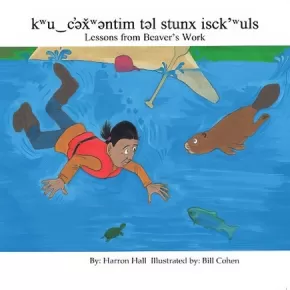
Browse Books for Teens
1
-
15
of
32 Results; (Teen Books Starting With "K")
Sort By
Go To
of 3
Kihiani: A Memoir of Healing
$36.99
Format:
Hardcover
ISBN / Barcode: 9781443472944
Synopsis:
Synopsis:
Profoundly honest and moving, Kihiani is the uplifting story of an Inuk artist’s journey to healing and self-discovery
Born in Fort Churchill, Manitoba, but raised in Arviat, a predominantly Inuit community on the western edges of Hudson Bay, Susan and her six siblings grew up in a humble but loving home. But while living in Rankin Inlet, when she was eight years old, Susan’s life was disrupted by a life-changing event, a distinct separation that created a schism inside her for many years and from which she continues to heal.
At fifteen, she started writing poems that spilled out of her, and when Susan had the choice to leave her community, she grabbed it like a lifeline. Eventually, Susan was approached by a producer at CBC who was making a compilation album of Arctic artists and years later signed with a major label for her third album, This Child.
The disruption and milestones, the turmoil and joy, the devastation and healing—this is Susan Aglukark’s story of discovering her Inuk self.
Additional Information
272 pages | 6.00" x 9.00" | Hardcover
Killing the Wittigo: Indigenous Culture-Based Approaches to Waking Up, Taking Action, and Doing the Work of Healing
$29.95
Format:
Paperback
ISBN / Barcode: 9781770417243
Synopsis:
Synopsis:
An unflinching reimagining of Legacy: Trauma, Story, and Indigenous Healing for young adults.
Written specifically for young adults, reluctant readers, and literacy learners, Killing the Wittigo explains the traumatic effects of colonization on Indigenous people and communities and how trauma alters an individual’s brain, body, and behavior. It explores how learned patterns of behavior — the ways people adapt to trauma to survive — are passed down within family systems, thereby affecting the functioning of entire communities. The book foregrounds Indigenous resilience through song lyrics and as-told-to stories by young people who have started their own journeys of decolonization, healing, and change. It also details the transformative work being done in urban and on-reserve communities through community-led projects and Indigenous-run institutions and community agencies. These stories offer concrete examples of the ways in which Indigenous peoples and communities are capable of healing in small and big ways — and they challenge readers to consider what the dominant society must do to create systemic change. Full of bold graphics and illustration, Killing the Wittigo is a much-needed resource for Indigenous kids and the people who love them and work with them.
Educator Information
Recommended for ages 12 to 17.
The adult version of this book can be found here: Legacy: Trauma, Story, and Indigenous Healing
Additional Information
160 pages | 5.50" x 8.50" | Paperback
kôhkominawak otâcimowiniwâwa / Our Grandmothers’ Lives As Told in Their Own Words
$29.95
Format:
Paperback
Text Content Territories:
Indigenous Canadian; First Nations; Cree (Nehiyawak); Métis;
ISBN / Barcode: 9780889779495
Synopsis:
Synopsis:
The 25th anniversary of a historically significant collection, presented in Cree and English.
kôhkominawak otâcimowiniwâwa / Our Grandmothers’ Lives is a collection of reminiscences and personal stories from the daily lives of seven Cree women over the past century, presented here in Cree and English. Recorded in their own language, these women share their memories of their lives and the history of their peoples, describing activities such as household chores, snaring rabbits and picking berries, going to school, marriage, bearing and raising children, and providing insights into the traditional teachings of a society in which the practical and spiritual are never far apart.
Reviews
"[T]hese ... are good stories to share ... and are absolute treasures." —Chelsea Vowel, author of Buffalo is the New Buffalo
"This book is a heartfelt collection of stories from Cree and Métis grandmothers. It shares their lives, traditions, and strength through carefully recorded and translated Oral Histories. Each story is told through the lens of the grandmother and gives a personal look into the lives and culture of these Indigenous women, showing their wisdom and resilience. The book is filled with intimate memories from each Elder, offering a glimpse into their experiences. Each memory is shared in both English and Cree. Ahenakew’s work highlights the importance of keeping these voices alive, helping readers understand the challenges and successes these grandmothers have faced. The book honours their contributions and is a valuable resource for anyone interested in Indigenous history, culture, and storytelling. Through their words, we see the rich experiences that have shaped their communities and the crucial role of Oral Traditions in preserving cultural identity." - David D., Indigenous Educator & Administrator, Indigenous Books for Schools
Educator & Series Information
This book is part of the Our Own Words series.
Presented in Cree and English.
This book is included in the Indigenous Books for Schools database from the Association of Book Publishers of BC. It is recommended for Grades 10 to 12 for English Language Arts and Social Studies.
Additional Information
418 pages | 6.00" x 9.00" | Paperback
Kukum
$22.99
Format:
Paperback
Text Content Territories:
Indigenous Canadian; First Nations; Innu (Montagnais-Naskapi); Mashteuiatsh (Pekuakamiulnuatsh);
Reading Level: N/A
ISBN / Barcode: 9781487010904
Synopsis:
Synopsis:
A Quebec bestseller based on the life of Michel Jean's great-grandmother that delivers an empathetic portrait of drastic change in an Innu community.
Kukum recounts the story of Almanda Siméon, an orphan raised by her aunt and uncle, who falls in love with a young Innu man despite their cultural differences and goes on to share her life with the Pekuakami Innu community. They accept her as one of their own: Almanda learns their language, how to live a nomadic existence, and begins to break down the barriers imposed on Indigenous women. Unfolding over the course of a century, the novel details the end of traditional ways of life for the Innu, as Almanda and her family face the loss of their land and confinement to reserves, and the enduring violence of residential schools.
Kukum intimately expresses the importance of Innu ancestral values and the need for freedom nomadic peoples feel to this day.
Educator Information
Translated by Susan Ouriou.
Additional Information
224 pages | 5.50" x 8.50" | Paperback
Kent Monkman: Life & Work
$40.00
Format:
Hardcover
Text Content Territories:
Indigenous Canadian; First Nations; Cree (Nehiyawak); Fisher River Cree;
ISBN / Barcode: 9781487102753
Synopsis:
Synopsis:
Kent Monkman's art has been described as "stupendous" (New York Times), "sure to alarm and educate" (The Observer), and beating "Western history painting at its own game" (The Globe and Mail). Subversive, bold, and groundbreaking, the work of this Cree artist has transformed contemporary Canadian visual culture. Monkman's art is included in major Canadian and international public institutions and he is the only artist in this country to be commissioned by The Metropolitan Museum of Art.
Kent Monkman: Life & Work is the first comprehensive book about the celebrated Monkman (b.1965). It is the only publication to trace the arc of his career, from his early abstract paintings to his rise to fame creating works that re-visit and reinterpret historic paintings to offer a powerful commentary on Indigenous resistance, remembrance, and the re-thinking of history.
Author Shirley Madill chronicles the origins of Miss Chief Eagle Testickle—Monkman's time-travelling, shape-shifting, gender-fluid alter ego, who features prominently in his work—and details his youth in Manitoba growing up as a member of the Fisher River First Nation, where he first became aware of profound social injustice. Madill explores Monkman's provocative interventions into Western European and American art history, and shows how he created a body of work that raises awareness of the critical issues facing Indigenous peoples by fiercely addressing North America's legacy of colonialism, while also critiquing Western art history. Kent Monkman: Life & Work is the definitive publication for anyone passionate about Indigenous issues, art in North America, and contemporary culture.
Additional Information
144 pages | 8.00" x 11.00" | Hardcover
Kwändǖr
$25.00
Format:
Paperback
Text Content Territories:
Indigenous Canadian; First Nations; Dene; Tahltan (Nahanni);
Reading Level: N/A
ISBN / Barcode: 9781772620771
Synopsis:
Synopsis:
Indigenous Voices Award winner Cole Pauls returns with a robust collection of stories that celebrate the cultural practices and experiences of Dene and Arctic peoples. Gathering Pauls's comics from magazines, comic festivals and zine making workshops, these comics are his most personal work yet. You'll learn stories about the author's family, racism and identity, Yukon history, winter activities, Southern Tutchone language lessons and cultural practices. Have you ever wanted to learn how to Knuckle Hop? or to acknowledge and respect the Indigenous land you’re on? Or how to be an ally to Indigenous people? Well, gather around and hear this Kwändǖr! (Story!).
Additional Information
140 pages | 6.50" x 10.00" Paperback
Kinship: Belonging in a World of Relations, Vol. 1 - Planet
$29.95
Editors:
Format:
Paperback
Text Content Territories:
Indigenous;
Reading Level: N/A
ISBN / Barcode: 9781736862506
Synopsis:
Additional Information
180 pages | 5.27" x 7.75" | Paperback
Synopsis:
Volume 1 of the Kinship series revolves around the question of planetary relations: What are the sources of our deepest evolutionary and planetary connections, and of our profound longing for kinship?
We live in an astounding world of relations. We share these ties that bind with our fellow humans—and we share these relations with nonhuman beings as well. From the bacterium swimming in your belly to the trees exhaling the breath you breathe, this community of life is our kin—and, for many cultures around the world, being human is based upon this extended sense of kinship.
Kinship: Belonging in a World of Relations is a lively series that explores our deep interconnections with the living world. The five Kinship volumes—Planet, Place, Partners, Persons, Practice—offer essays, interviews, poetry, and stories of solidarity, highlighting the interdependence that exists between humans and nonhuman beings. More than 70 contributors—including Robin Wall Kimmerer, Richard Powers, David Abram, J. Drew Lanham, and Sharon Blackie—invite readers into cosmologies, narratives, and everyday interactions that embrace a more-than-human world as worthy of our response and responsibility.
With every breath, every sip of water, every meal, we are reminded that our lives are inseparable from the life of the world—and the cosmos—in ways both material and spiritual. “Planet,” Volume 1 of the Kinship series, focuses on our Earthen home and the cosmos within which our “pale blue dot” of a planet nestles. National poet laureate Joy Harjo opens up the volume asking us to “Remember the sky you were born under.” The essayists and poets that follow—such as geologist Marcia Bjornerud who takes readers on a Deep Time journey, geophilosopher David Abram who imagines the Earth’s breathing through animal migrations, and theoretical physicist Marcelo Gleiser who contemplates the relations between mystery and science—offer perspectives from around the world and from various cultures about what it means to be an Earthling, and all that we share in common with our planetary kin. “Remember,” Harjo implores, “all is in motion, is growing, is you.”
Proceeds from sales of Kinship benefit the nonprofit, non-partisan Center for Humans and Nature, which partners with some of the brightest minds to explore human responsibilities to each other and the more-than-human world. The Center brings together philosophers, ecologists, artists, political scientists, anthropologists, poets and economists, among others, to think creatively about a resilient future for the whole community of life.
We live in an astounding world of relations. We share these ties that bind with our fellow humans—and we share these relations with nonhuman beings as well. From the bacterium swimming in your belly to the trees exhaling the breath you breathe, this community of life is our kin—and, for many cultures around the world, being human is based upon this extended sense of kinship.
Kinship: Belonging in a World of Relations is a lively series that explores our deep interconnections with the living world. The five Kinship volumes—Planet, Place, Partners, Persons, Practice—offer essays, interviews, poetry, and stories of solidarity, highlighting the interdependence that exists between humans and nonhuman beings. More than 70 contributors—including Robin Wall Kimmerer, Richard Powers, David Abram, J. Drew Lanham, and Sharon Blackie—invite readers into cosmologies, narratives, and everyday interactions that embrace a more-than-human world as worthy of our response and responsibility.
With every breath, every sip of water, every meal, we are reminded that our lives are inseparable from the life of the world—and the cosmos—in ways both material and spiritual. “Planet,” Volume 1 of the Kinship series, focuses on our Earthen home and the cosmos within which our “pale blue dot” of a planet nestles. National poet laureate Joy Harjo opens up the volume asking us to “Remember the sky you were born under.” The essayists and poets that follow—such as geologist Marcia Bjornerud who takes readers on a Deep Time journey, geophilosopher David Abram who imagines the Earth’s breathing through animal migrations, and theoretical physicist Marcelo Gleiser who contemplates the relations between mystery and science—offer perspectives from around the world and from various cultures about what it means to be an Earthling, and all that we share in common with our planetary kin. “Remember,” Harjo implores, “all is in motion, is growing, is you.”
Proceeds from sales of Kinship benefit the nonprofit, non-partisan Center for Humans and Nature, which partners with some of the brightest minds to explore human responsibilities to each other and the more-than-human world. The Center brings together philosophers, ecologists, artists, political scientists, anthropologists, poets and economists, among others, to think creatively about a resilient future for the whole community of life.
Educator & Series Information
Contributors are both Indigenous and non-Indigenous.
Contributors are both Indigenous and non-Indigenous.
Kinship: Belonging in a World of Relations is a lively series that explores our deep interconnections with the living world. The five Kinship volumes—Planet, Place, Partners, Persons, Practice—offer essays, interviews, poetry, and stories of solidarity, highlighting the interdependence that exists between humans and nonhuman beings. More than 70 contributors—including Robin Wall Kimmerer, Richard Powers, David Abram, J. Drew Lanham, and Sharon Blackie—invite readers into cosmologies, narratives, and everyday interactions that embrace a more-than-human world as worthy of our response and responsibility.
Additional Information
180 pages | 5.27" x 7.75" | Paperback
Kinship: Belonging in a World of Relations, Vol. 2 - Place
$34.00
Editors:
Format:
Paperback
Text Content Territories:
Indigenous;
Reading Level: N/A
ISBN / Barcode: 9781736862513
Synopsis:
Additional Information
204 pages | 5.27" x 7.75" | Paperback
Synopsis:
Volume 2 of the Kinship series revolves around the question of place-based relations: To what extent does crafting a deeper connection with the Earth’s bioregions reinvigorate a sense of kinship with the place-based beings, systems, and communities that mutually shape one another?
We live in an astounding world of relations. We share these ties that bind with our fellow humans—and we share these relations with nonhuman beings as well. From the bacterium swimming in your belly to the trees exhaling the breath you breathe, this community of life is our kin—and, for many cultures around the world, being human is based upon this extended sense of kinship.
Kinship: Belonging in a World of Relations is a lively series that explores our deep interconnections with the living world. The five Kinship volumes—Planet, Place, Partners, Persons, Practice—offer essays, interviews, poetry, and stories of solidarity, highlighting the interdependence that exists between humans and nonhuman beings. More than 70 contributors—including Robin Wall Kimmerer, Richard Powers, David Abram, J. Drew Lanham, and Sharon Blackie—invite readers into cosmologies, narratives, and everyday interactions that embrace a more-than-human world as worthy of our response and responsibility.
Given the place-based circumstances of human evolution and culture, global consciousness may be too broad a scale of care. “Place,” Volume 2 of the Kinship series, addresses the bioregional, multispecies communities and landscapes within which we dwell. The essayists and poets in this volume take us around the world to a variety of distinctive places—from ethnobiologist Gary Paul Nabhan’s beloved and beleaguered sacred U.S.-Mexico borderlands, to Pacific islander and poet Craig Santos Perez’s ancestral shores, to writer Lisa María Madera’s “vibrant flow of kinship” in the equatorial Andes expressed in Pacha Mama’s constitutional rights in Ecuador. As Chippewa scholar-activist Melissa Nelson observes about kinning with place in her conversation with John Hausdoerffer: “Whether a desert mesa, a forested mountain, a windswept plain, or a crowded city—those places also participate in this serious play with raven cries, northern winds, car traffic, or coyote howls.” This volume reveals the ways in which playing in, tending to, and caring for place wraps us into a world of kinship.
Proceeds from sales of Kinship benefit the nonprofit, non-partisan Center for Humans and Nature, which partners with some of the brightest minds to explore human responsibilities to each other and the more-than-human world. The Center brings together philosophers, ecologists, artists, political scientists, anthropologists, poets and economists, among others, to think creatively about a resilient future for the whole community of life.
We live in an astounding world of relations. We share these ties that bind with our fellow humans—and we share these relations with nonhuman beings as well. From the bacterium swimming in your belly to the trees exhaling the breath you breathe, this community of life is our kin—and, for many cultures around the world, being human is based upon this extended sense of kinship.
Kinship: Belonging in a World of Relations is a lively series that explores our deep interconnections with the living world. The five Kinship volumes—Planet, Place, Partners, Persons, Practice—offer essays, interviews, poetry, and stories of solidarity, highlighting the interdependence that exists between humans and nonhuman beings. More than 70 contributors—including Robin Wall Kimmerer, Richard Powers, David Abram, J. Drew Lanham, and Sharon Blackie—invite readers into cosmologies, narratives, and everyday interactions that embrace a more-than-human world as worthy of our response and responsibility.
Given the place-based circumstances of human evolution and culture, global consciousness may be too broad a scale of care. “Place,” Volume 2 of the Kinship series, addresses the bioregional, multispecies communities and landscapes within which we dwell. The essayists and poets in this volume take us around the world to a variety of distinctive places—from ethnobiologist Gary Paul Nabhan’s beloved and beleaguered sacred U.S.-Mexico borderlands, to Pacific islander and poet Craig Santos Perez’s ancestral shores, to writer Lisa María Madera’s “vibrant flow of kinship” in the equatorial Andes expressed in Pacha Mama’s constitutional rights in Ecuador. As Chippewa scholar-activist Melissa Nelson observes about kinning with place in her conversation with John Hausdoerffer: “Whether a desert mesa, a forested mountain, a windswept plain, or a crowded city—those places also participate in this serious play with raven cries, northern winds, car traffic, or coyote howls.” This volume reveals the ways in which playing in, tending to, and caring for place wraps us into a world of kinship.
Proceeds from sales of Kinship benefit the nonprofit, non-partisan Center for Humans and Nature, which partners with some of the brightest minds to explore human responsibilities to each other and the more-than-human world. The Center brings together philosophers, ecologists, artists, political scientists, anthropologists, poets and economists, among others, to think creatively about a resilient future for the whole community of life.
Educator & Series Information
Contributors are both Indigenous and non-Indigenous.
Contributors are both Indigenous and non-Indigenous.
Kinship: Belonging in a World of Relations is a lively series that explores our deep interconnections with the living world. The five Kinship volumes—Planet, Place, Partners, Persons, Practice—offer essays, interviews, poetry, and stories of solidarity, highlighting the interdependence that exists between humans and nonhuman beings. More than 70 contributors—including Robin Wall Kimmerer, Richard Powers, David Abram, J. Drew Lanham, and Sharon Blackie—invite readers into cosmologies, narratives, and everyday interactions that embrace a more-than-human world as worthy of our response and responsibility.
Additional Information
204 pages | 5.27" x 7.75" | Paperback
Kinship: Belonging in a World of Relations, Vol. 3 - Partners
$29.95
Editors:
Format:
Paperback
Text Content Territories:
Indigenous;
Reading Level: N/A
ISBN / Barcode: 9781736862520
Synopsis:
Additional Information
170 pages | 5.27" x 7.75" | Paperback
Synopsis:
Volume 3 of the Kinship series revolves around the question of interspecies relations: How do relations between and among different species foster a sense of responsibility and belonging in us?
We live in an astounding world of relations. We share these ties that bind with our fellow humans—and we share these relations with nonhuman beings as well. From the bacterium swimming in your belly to the trees exhaling the breath you breathe, this community of life is our kin—and, for many cultures around the world, being human is based upon this extended sense of kinship.
Kinship: Belonging in a World of Relations is a lively series that explores our deep interconnections with the living world. The five Kinship volumes—Planet, Place, Partners, Persons, Practice—offer essays, interviews, poetry, and stories of solidarity, highlighting the interdependence that exists between humans and nonhuman beings. More than 70 contributors—including Robin Wall Kimmerer, Richard Powers, David Abram, J. Drew Lanham, and Sharon Blackie—invite readers into cosmologies, narratives, and everyday interactions that embrace a more-than-human world as worthy of our response and responsibility.
How do cultural traditions, narratives, and mythologies shape the ways we relate, or not, to other beings as kin? “Partners,” Volume 3 of the Kinship series, looks to the intimate relationships of respect and reverence we share with nonhuman species. The essayists and poets in this volume explore the stunning diversity of our relations to nonhuman persons—from biologist Merlin Sheldrake’s reflections on microscopic fungal networks, to writer Julian Hoffman’s moving stories about elephant emotions and communication, to Indigenous seed activist Rowen White’s deep care for plant relatives and ancestors. Our relationships to other creatures are not merely important; they make us possible. As poet Brenda Cárdenas, inspired by her cultural connections to the monarch butterfly, notes in this volume: “We are— / one life passing through the prism / of all others, gathering color and song.”
Proceeds from sales of Kinship benefit the nonprofit, non-partisan Center for Humans and Nature, which partners with some of the brightest minds to explore human responsibilities to each other and the more-than-human world. The Center brings together philosophers, ecologists, artists, political scientists, anthropologists, poets and economists, among others, to think creatively about a resilient future for the whole community of life.
We live in an astounding world of relations. We share these ties that bind with our fellow humans—and we share these relations with nonhuman beings as well. From the bacterium swimming in your belly to the trees exhaling the breath you breathe, this community of life is our kin—and, for many cultures around the world, being human is based upon this extended sense of kinship.
Kinship: Belonging in a World of Relations is a lively series that explores our deep interconnections with the living world. The five Kinship volumes—Planet, Place, Partners, Persons, Practice—offer essays, interviews, poetry, and stories of solidarity, highlighting the interdependence that exists between humans and nonhuman beings. More than 70 contributors—including Robin Wall Kimmerer, Richard Powers, David Abram, J. Drew Lanham, and Sharon Blackie—invite readers into cosmologies, narratives, and everyday interactions that embrace a more-than-human world as worthy of our response and responsibility.
How do cultural traditions, narratives, and mythologies shape the ways we relate, or not, to other beings as kin? “Partners,” Volume 3 of the Kinship series, looks to the intimate relationships of respect and reverence we share with nonhuman species. The essayists and poets in this volume explore the stunning diversity of our relations to nonhuman persons—from biologist Merlin Sheldrake’s reflections on microscopic fungal networks, to writer Julian Hoffman’s moving stories about elephant emotions and communication, to Indigenous seed activist Rowen White’s deep care for plant relatives and ancestors. Our relationships to other creatures are not merely important; they make us possible. As poet Brenda Cárdenas, inspired by her cultural connections to the monarch butterfly, notes in this volume: “We are— / one life passing through the prism / of all others, gathering color and song.”
Proceeds from sales of Kinship benefit the nonprofit, non-partisan Center for Humans and Nature, which partners with some of the brightest minds to explore human responsibilities to each other and the more-than-human world. The Center brings together philosophers, ecologists, artists, political scientists, anthropologists, poets and economists, among others, to think creatively about a resilient future for the whole community of life.
Educator & Series Information
Contributors are both Indigenous and non-Indigenous.
Contributors are both Indigenous and non-Indigenous.
Kinship: Belonging in a World of Relations is a lively series that explores our deep interconnections with the living world. The five Kinship volumes—Planet, Place, Partners, Persons, Practice—offer essays, interviews, poetry, and stories of solidarity, highlighting the interdependence that exists between humans and nonhuman beings. More than 70 contributors—including Robin Wall Kimmerer, Richard Powers, David Abram, J. Drew Lanham, and Sharon Blackie—invite readers into cosmologies, narratives, and everyday interactions that embrace a more-than-human world as worthy of our response and responsibility.
Additional Information
170 pages | 5.27" x 7.75" | Paperback
Kinship: Belonging in a World of Relations, Vol. 4 - Persons
$29.95
Editors:
Format:
Paperback
Text Content Territories:
Indigenous;
Reading Level: N/A
ISBN / Barcode: 9781736862537
Synopsis:
Additional Information
194 pages | 5.27" x 7.75" | Paperback
Synopsis:
Volume 4 of the Kinship series revolves around the question of interpersonal relations: Which experiences expand our understanding of being human in relation to other-than-human beings?
We live in an astounding world of relations. We share these ties that bind with our fellow humans—and we share these relations with nonhuman beings as well. From the bacterium swimming in your belly to the trees exhaling the breath you breathe, this community of life is our kin—and, for many cultures around the world, being human is based upon this extended sense of kinship.
Kinship: Belonging in a World of Relations is a lively series that explores our deep interconnections with the living world. The five Kinship volumes—Planet, Place, Partners, Persons, Practice—offer essays, interviews, poetry, and stories of solidarity, highlighting the interdependence that exists between humans and nonhuman beings. More than 70 contributors—including Robin Wall Kimmerer, Richard Powers, David Abram, J. Drew Lanham, and Sharon Blackie—invite readers into cosmologies, narratives, and everyday interactions that embrace a more-than-human world as worthy of our response and responsibility.
Kinship spans the cosmos, but it is perhaps most life-changing when experienced directly and personally. “Persons,” Volume 4 of the Kinship series, attends to the personal—our unique experiences with particular creatures and landscapes. This includes nonhuman kin that become our allies, familiars, and teachers as we navigate a “world as full of persons, human and otherwise, all more-or-less close kin, all deserving respect,” as religious studies scholar Graham Harvey puts it. The essayists and poets in the volume share a wide variety of kinship-based experiences—from Australian ecophilosopher Freya Mathews’s perspective on climate-related devastation on her country’s koalas, to English professor and forest therapy guide Kimberly Ruffin’s reclamation of her “inner animal,” to German biologist and philosopher Andreas Weber’s absorption with and by lichen. Our kinships are interpersonal, and being “pried open with curiosity,” as poet and hip-hop emcee Manon Voice notes in this volume, “Stir the first of many magicks.”
Proceeds from sales of Kinship benefit the nonprofit, non-partisan Center for Humans and Nature, which partners with some of the brightest minds to explore human responsibilities to each other and the more-than-human world. The Center brings together philosophers, ecologists, artists, political scientists, anthropologists, poets and economists, among others, to think creatively about a resilient future for the whole community of life.
We live in an astounding world of relations. We share these ties that bind with our fellow humans—and we share these relations with nonhuman beings as well. From the bacterium swimming in your belly to the trees exhaling the breath you breathe, this community of life is our kin—and, for many cultures around the world, being human is based upon this extended sense of kinship.
Kinship: Belonging in a World of Relations is a lively series that explores our deep interconnections with the living world. The five Kinship volumes—Planet, Place, Partners, Persons, Practice—offer essays, interviews, poetry, and stories of solidarity, highlighting the interdependence that exists between humans and nonhuman beings. More than 70 contributors—including Robin Wall Kimmerer, Richard Powers, David Abram, J. Drew Lanham, and Sharon Blackie—invite readers into cosmologies, narratives, and everyday interactions that embrace a more-than-human world as worthy of our response and responsibility.
Kinship spans the cosmos, but it is perhaps most life-changing when experienced directly and personally. “Persons,” Volume 4 of the Kinship series, attends to the personal—our unique experiences with particular creatures and landscapes. This includes nonhuman kin that become our allies, familiars, and teachers as we navigate a “world as full of persons, human and otherwise, all more-or-less close kin, all deserving respect,” as religious studies scholar Graham Harvey puts it. The essayists and poets in the volume share a wide variety of kinship-based experiences—from Australian ecophilosopher Freya Mathews’s perspective on climate-related devastation on her country’s koalas, to English professor and forest therapy guide Kimberly Ruffin’s reclamation of her “inner animal,” to German biologist and philosopher Andreas Weber’s absorption with and by lichen. Our kinships are interpersonal, and being “pried open with curiosity,” as poet and hip-hop emcee Manon Voice notes in this volume, “Stir the first of many magicks.”
Proceeds from sales of Kinship benefit the nonprofit, non-partisan Center for Humans and Nature, which partners with some of the brightest minds to explore human responsibilities to each other and the more-than-human world. The Center brings together philosophers, ecologists, artists, political scientists, anthropologists, poets and economists, among others, to think creatively about a resilient future for the whole community of life.
Educator & Series Information
One of the editors of this work is Indigenous. And, throughout the series, various Indigenous contributions (stories, poems, etc.) can be found.
One of the editors of this work is Indigenous. And, throughout the series, various Indigenous contributions (stories, poems, etc.) can be found.
Kinship: Belonging in a World of Relations is a lively series that explores our deep interconnections with the living world. The five Kinship volumes—Planet, Place, Partners, Persons, Practice—offer essays, interviews, poetry, and stories of solidarity, highlighting the interdependence that exists between humans and nonhuman beings. More than 70 contributors—including Robin Wall Kimmerer, Richard Powers, David Abram, J. Drew Lanham, and Sharon Blackie—invite readers into cosmologies, narratives, and everyday interactions that embrace a more-than-human world as worthy of our response and responsibility.
Additional Information
194 pages | 5.27" x 7.75" | Paperback
Kinship: Belonging in a World of Relations, Vol. 5 - Practice
$22.00
Editors:
Format:
Paperback
Text Content Territories:
Indigenous;
Reading Level: N/A
ISBN / Barcode: 9781736862544
Synopsis:
Additional Information
194 pages | 5.27" x 7.75" | Paperback
Synopsis:
Volume 5 of the Kinship series revolves around the question of practice: What are the practical, everyday, and lifelong ways we become kin?
We live in an astounding world of relations. We share these ties that bind with our fellow humans—and we share these relations with nonhuman beings as well. From the bacterium swimming in your belly to the trees exhaling the breath you breathe, this community of life is our kin—and, for many cultures around the world, being human is based upon this extended sense of kinship.
Kinship: Belonging in a World of Relations is a lively series that explores our deep interconnections with the living world. These five Kinship volumes—Planet, Place, Partners, Persons, Practice—offer essays, interviews, poetry, and stories of solidarity, highlighting the interdependence that exists between humans and nonhuman beings. More than 70 contributors—including Robin Wall Kimmerer, Richard Powers, David Abram, J. Drew Lanham, and Sharon Blackie—invite readers into cosmologies, narratives, and everyday interactions that embrace a more-than-human world as worthy of our response and responsibility. These diverse voices render a wide range of possibilities for becoming better kin.
From the perspective of kinship as a recognition of nonhuman personhood, of kincentric ethics, and of kinship as a verb involving active and ongoing participation, how are we to live? “Practice,” Volume 5 of the Kinship series, turns to the relations that we nurture and cultivate as part of our lived ethics. The essayists and poets in this volume explore how we make kin and strengthen kin relationships through respectful participation—from creative writer and dance teacher Maya Ward’s weave of landscape, story, song, and body, to Lakota peace activist Tiokasin Ghosthorse’s reflections on language as a key way of knowing and practicing kinship, to cultural geographer Amba Sepie’s wrestling with how to become kin when ancestral connections have frayed. The volume concludes with an amazing and spirited conversation between John Hausdoerffer, Robin Wall Kimmerer, Sharon Blackie, Enrique Salmon, Orrin Williams, and Maria Isabel Morales on the breadth and qualities of kinship practices.
Proceeds from sales of Kinship benefit the nonprofit, non-partisan Center for Humans and Nature, which partners with some of the brightest minds to explore human responsibilities to each other and the more-than-human world. The Center brings together philosophers, ecologists, artists, political scientists, anthropologists, poets and economists, among others, to think creatively about a resilient future for the whole community of life.
We live in an astounding world of relations. We share these ties that bind with our fellow humans—and we share these relations with nonhuman beings as well. From the bacterium swimming in your belly to the trees exhaling the breath you breathe, this community of life is our kin—and, for many cultures around the world, being human is based upon this extended sense of kinship.
Kinship: Belonging in a World of Relations is a lively series that explores our deep interconnections with the living world. These five Kinship volumes—Planet, Place, Partners, Persons, Practice—offer essays, interviews, poetry, and stories of solidarity, highlighting the interdependence that exists between humans and nonhuman beings. More than 70 contributors—including Robin Wall Kimmerer, Richard Powers, David Abram, J. Drew Lanham, and Sharon Blackie—invite readers into cosmologies, narratives, and everyday interactions that embrace a more-than-human world as worthy of our response and responsibility. These diverse voices render a wide range of possibilities for becoming better kin.
From the perspective of kinship as a recognition of nonhuman personhood, of kincentric ethics, and of kinship as a verb involving active and ongoing participation, how are we to live? “Practice,” Volume 5 of the Kinship series, turns to the relations that we nurture and cultivate as part of our lived ethics. The essayists and poets in this volume explore how we make kin and strengthen kin relationships through respectful participation—from creative writer and dance teacher Maya Ward’s weave of landscape, story, song, and body, to Lakota peace activist Tiokasin Ghosthorse’s reflections on language as a key way of knowing and practicing kinship, to cultural geographer Amba Sepie’s wrestling with how to become kin when ancestral connections have frayed. The volume concludes with an amazing and spirited conversation between John Hausdoerffer, Robin Wall Kimmerer, Sharon Blackie, Enrique Salmon, Orrin Williams, and Maria Isabel Morales on the breadth and qualities of kinship practices.
Proceeds from sales of Kinship benefit the nonprofit, non-partisan Center for Humans and Nature, which partners with some of the brightest minds to explore human responsibilities to each other and the more-than-human world. The Center brings together philosophers, ecologists, artists, political scientists, anthropologists, poets and economists, among others, to think creatively about a resilient future for the whole community of life.
Educator & Series Information
Contributors are both Indigenous and non-Indigenous.
Contributors are both Indigenous and non-Indigenous.
Kinship: Belonging in a World of Relations is a lively series that explores our deep interconnections with the living world. The five Kinship volumes—Planet, Place, Partners, Persons, Practice—offer essays, interviews, poetry, and stories of solidarity, highlighting the interdependence that exists between humans and nonhuman beings. More than 70 contributors—including Robin Wall Kimmerer, Richard Powers, David Abram, J. Drew Lanham, and Sharon Blackie—invite readers into cosmologies, narratives, and everyday interactions that embrace a more-than-human world as worthy of our response and responsibility.
Additional Information
194 pages | 5.27" x 7.75" | Paperback
Kitcikisik: (Great Sky) Tellings That Fill the Night Sky
$22.95
Artists:
Format:
Paperback
Text Content Territories:
Indigenous Canadian; First Nations; Cree (Nehiyawak);
ISBN / Barcode: 9781990297038
Synopsis:
Synopsis:
Pawaminikititicikiw, Wilfred Buck, is an Ininew / Cree, Knowledge and Dream Keeper of the Opaskwayak Cree Nation of Northern Manitoba. He is the author of Tipiskawi Kisik: Night Sky Star stories, and I Have Lived Four Lives, a memoir. Kitcikisik (Great Sky) features Indigenous Star Knowledge and is the second edition of Tipiskawi Kisik.
Educator Information
Recommended by the publisher for grades 7+
Additional Information
86 Pages
Kitotam: He Speaks to It
$20.00
Format:
Paperback
Text Content Territories:
Indigenous Canadian; First Nations; Cree (Nehiyawak); Plains Cree;
ISBN / Barcode: 9781989274507
Synopsis:
Synopsis:
The Neyhiyawak (Plains Cree) word "Kitotam" translates into English as, "He Speaks to It." This is a collection of free-verse poetry by Indigenous poet and artist John McDonald. Written in two parts, these poems chronicle John's life and experiences as an urban Indigenous youth during the 1980s. The second half of the book is a look into the inspirations and events, that shaped John's career as an internationally known spoken word artist, beat poet, monologist and performance artist.
Additional Information
88 pages | 5.50" x 8.50"
Kuei, je te salue: Conversation sur le racisme [nouvelle edition]
$22.00
Format:
Paperback
Text Content Territories:
Indigenous Canadian; First Nations; Innu (Montagnais-Naskapi);
ISBN / Barcode: 9782897196967
Synopsis:
Synopsis:
Un livre à mettre entre toutes les mains, pour que le dialogue prenne le pas sur le racisme En 2016, la poète Innu Natasha Kanapé Fontaine et le romancier québéco-américain Deni Ellis Béchard entamaient une conversation sans tabou sur le racisme entre Autochtones et Allochtones. Cette rencontre littéraire et poétique ouvrait un dialogue nécessaire et faisait émerger une série de questions. Comment cohabiter si notre histoire commune est empreinte de honte, de blessures et de colère ? Comment faire réaliser aux Blancs le privilège invisible de la domination historique? Comment guérir les Autochtones des stigmates du génocide culturel ? Pour ouvrir le dialogue et amorcer la nécessaire réconciliation entre nos peuples, Deni et Natasha sont partis de leur trajectoire personnelle et ont tenté de débusquer les mots et comportements qui empruntent les chemins du racisme. Natasha raconte sa découverte des pensionnats autochtones, son obsession pour la crise d'Oka, la vie sur la réserve de Pessamit ; Deni parle du racisme ordinaire de son père, de la ségrégation envers les Afro-Américains, de son identité de Québécois aux États-Unis. Cinq ans et des milliers de lecteurs et lectrices plus tard, Deni et Natasha ont décidé de reprendre la plume et de poursuivre ce « rendez-vous de la parole qui s'ouvre ». Démarré en septembre 2020, leur échange épistolaire renoue avec le ton intimiste et le foisonnement intellectuel qui caractérisaient leurs premiers échanges. Deni écrit depuis Stanford, en Californie, alors que les feux de forêts ravagent ce territoire et que la campagne présidentielle bat son plein aux États-Unis, en pleine pandémie, sur fond de montée des extrêmes et d’une parole haineuse libérée par quatre ans de pouvoir de Trump. Il décrit la mobilisation sans précédent du mouvement Black Live Matters à la suite de l’assassinat odieux de George Floyd, cet Afro-Américain de 46 ans abattu par un policier blanc à Minneapolis le 25 mai 2020. Natasha a été marquée par le soulèvement des Wet’suwet’en contre le gazoduc Coastal GasLink partout au Canada et par l’hypocrisie colonialiste de la politique de la reconnaissance du gouvernement Trudeau à l’égard des Autochtones. Puis, au milieu de leurs échanges, est arrivé l’impensable : la mort de Joyce Echaquan, une femme de 37 ans, Atikamekw, sous les injures racistes et humiliantes de deux infirmières de l’hôpital de Joliette. « Une indignation est montée. […] À Montréal, le samedi suivant, nous étions des milliers à marcher pour la reconnaissance du racisme systémique, comme celui dans les services de la santé, et à réclamer justice. Son nom est désormais rattaché au mot « justice » : Justice Pour Joyce. Une douleur est venue m’envahir. Depuis, elle habite mon corps comme une vieille amie. Je n’ai pas ressenti de colère. Je n’en ai plus la force. Une douleur tellement vive, Deni. J’en pleure presque tous les jours. » Deni lui répond : « Chère nuitsheuakan, pendant cette période de souffrances et d’incertitudes, il est clair que la solution passera par un chemin long et difficile. […] Récemment, je me suis plongé dans l’histoire des mouvements sociaux et j’ai pris conscience des millions de personnes qui ont lutté jusqu’ici. C’est horrible de parler de patience quand tellement d’êtres humains vivent de l’oppression, mais il faut qu’on persiste et qu’on sache qu’au cœur de tout ce qu’on fait, reste le dialogue. Un proverbe grec dit : «?Une société devient grande quand des vieillards plantent des arbres à l’ombre desquels ils savent qu’ils ne s’assoiront jamais.?» Je souhaite qu’on ait des politicien.ne.s qui, un jour, se demandent ce qu’il faut faire aujourd’hui pour avoir la paix demain. En attendant, on a des artistes et des militant.e.s comme toi.» Croisant leurs mots, leurs indignations et leurs espoirs, ces deux grands écrivain.e.s nous offrent un livre humaniste et universel sur le rapport à l'autre et le respect de la différence.
Educator Information
The English version of this resource is a recommended resource for Grades 10-12 in these areas: BC First Peoples, Contemporary Indigenous Studies, English First Peoples, English Studies, Literary Studies.
This resource is also available in English: Kuei, My Friend: A Conversation on Race and Reconciliation.
kʷu‿c̕əx̌ʷəntim təl stunx isck’ʷuls / Lessons From Beaver’s Work
$15.95
Artists:
Format:
Paperback
Text Content Territories:
Indigenous Canadian; First Nations; Salish; Interior Salish; Syilx (Okanagan);
ISBN / Barcode: 9781926886688
Synopsis:
Synopsis:
Beaver shares his teachings on how he shapes the land.
kʷu‿c̕əx̌ʷəntim təl stunx isck’ʷuls / Lessons From Beaver’s Work teaches children through storytelling to hold reverence for all life forms. The book depicts a conflict between Tapit, a rancher, and stunx (beaver), as they both try to meet their water needs. The touching humanity of stunx (Beaver) softens Tapit’s outlook, as he reminds Tapit that he is not the only one that depends on water.
Educator & Series Information
Recommended for ages 10 to 13.
Author Harron Hall has written several children's books that incorporate her Indigenous heritage and her deep commitment to protecting the land and water, including The Water Sings to Suli?, Water Changeling and We Go with Muskrat to Those Living Underwater.
This fictional story teaches the importance of watersheds and protecting our water systems.
Includes words in n'syilxwcn, the language spoken by the Sylix/Okanagan peoples.
This book is part of the Follow the Water series.
Additional Information
26 pages | 8.00" x 8.00"
Sort By
Go To
of 3

